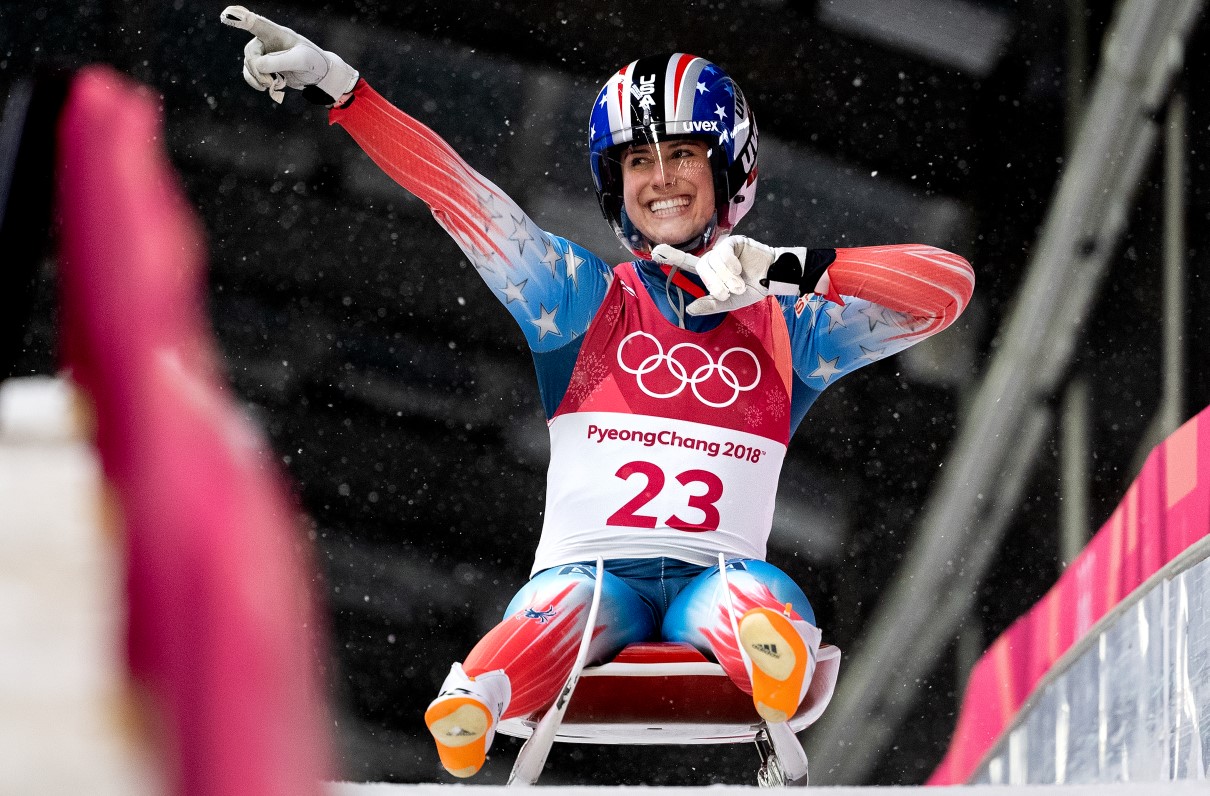The U.S. military will have a strong presence at the 2022 Winter Olympics in Beijing, with at least eight soldiers and one airman set to compete for Team USA.
For the Army contingent, Sgt. Emily Sweeney (Suffield, Conn.) will compete in luge, while Vermont National Guard Sgt. Deedra Irwin (Pulaski, Wis.) will take part in the biathlon.
The other soldier-athletes are all specialists: Frank Del Duca (Bethel, Maine) and Hakeem Abdul-Saboor (Powhatan, Va.) will compete in bobsled; Utah National Guard members Jasper Good (Steamboat Springs, Colo.) and Benjamin Loomis (Eau Claire, Wis.) will compete in the Nordic combined; and Vermont National Guard soldiers Sean Doherty (Center Conway, N.H.) and Leif Nordgren (Hinesburg, Vt.) will compete in the biathlon.
Airman 1st Class Kelly Curtis (Princeton, N.J.), USAF, will compete in skeleton.
Learn more about these extraordinary athletes below. Get a full schedule for Winter Games events at this link; the opening ceremony take place Feb. 4, though competition begins Feb. 2.
[FROM MILITARY.COM: How to Watch the Winter Olympics for Free]
Sgt. Emily Sweeney, USA (Luge)
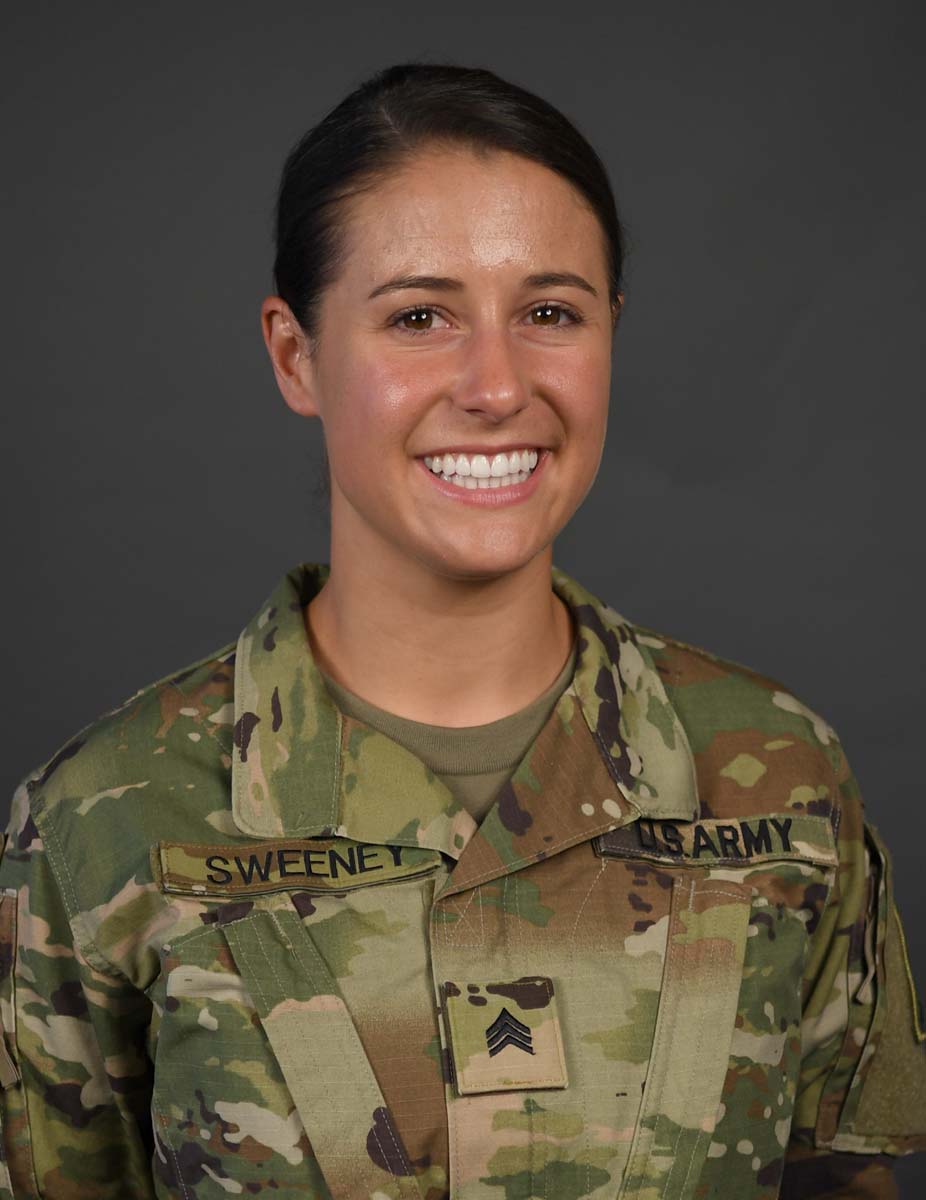 Sweeney started her luge career at age 10 and was an Olympic alternate in 2010 – the same year her sister Megan competed for the U.S. at the Winter Olympics in Vancouver.
Sweeney started her luge career at age 10 and was an Olympic alternate in 2010 – the same year her sister Megan competed for the U.S. at the Winter Olympics in Vancouver.
After graduating from high school in 2011, Emily joined the Army National Guard. She competed for Team USA at the 2018 games in Pyeongchang, South Korea, but suffered fractures to her neck and back in a crash on her final run. She’s competed in three World Championships since the crash and a total of seven in her career. Sweeney, a military police soldier, moved from the National Guard to active service shortly after the 2018 Games.
"I thought it was a great avenue of opportunity," Sweeney told the Army News Service of her decision to join the military. "I knew I wanted to continue being an athlete, but I didn't want to only be an athlete. I wanted something else to pursue beyond my athletic career."
Sgt. Deedra Irwin, ARNG (Biathlon)
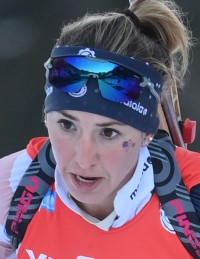 The Wisconsin native and Vermont National Guard member is making her first Winter Olympics appearance after finishing fifth in women’s relay in the 2022 IBU World Cup in Italy. The biathlon combines cross-country skiing and shooting.
The Wisconsin native and Vermont National Guard member is making her first Winter Olympics appearance after finishing fifth in women’s relay in the 2022 IBU World Cup in Italy. The biathlon combines cross-country skiing and shooting.
She also competed in the 2021 World Championships in Slovenia, placing 51st in the sprint, 45th in pursuit, and 13th in relay. Irwin joined the National Guard in 2019 and is a human resource specialist serving with the 86th Troop Command.
“It’s still sort of surreal,” Irwin told Vermont National Guard public affairs. “You dream about something and chase it with everything you’ve got and now to be able to compete in the Olympics, I am just so honored, and I can’t wait to compete in Beijing.”
Spc. Frank Del Duca, USA (Bobsled)
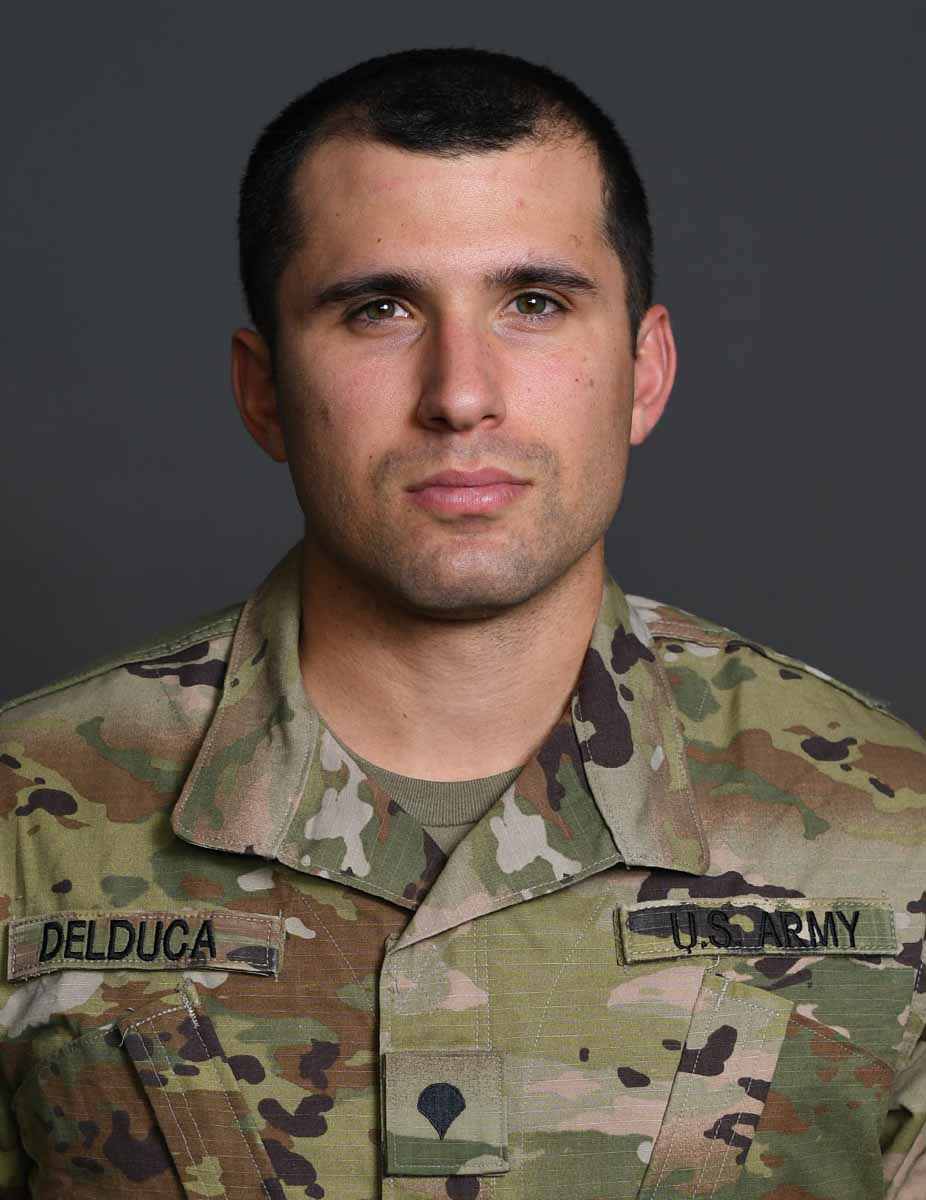 A high school skiing state champion and former track and field star at the University of Maine, Del Duca was named as a Tier 1 push athlete bobsled recruit in 2015.
A high school skiing state champion and former track and field star at the University of Maine, Del Duca was named as a Tier 1 push athlete bobsled recruit in 2015.
In 2018, he won the USA National Bobsleigh Push Championships. Overall, Del Duca has tallied medals in 16 North America Cup races, including seven golds. Del Duca joined the Army in 2019.
“I just want to express my gratitude for the U.S. Army, the World Class Athlete Program, giving myself and my teammates the support we need to compete at the highest level,” Del Duca, an infantryman, told Fox 13 Seattle. “We’re growing as individuals. We’re growing as a team.”
Spc. Hakeem Abdul-Saboor, USA (Bobsled)
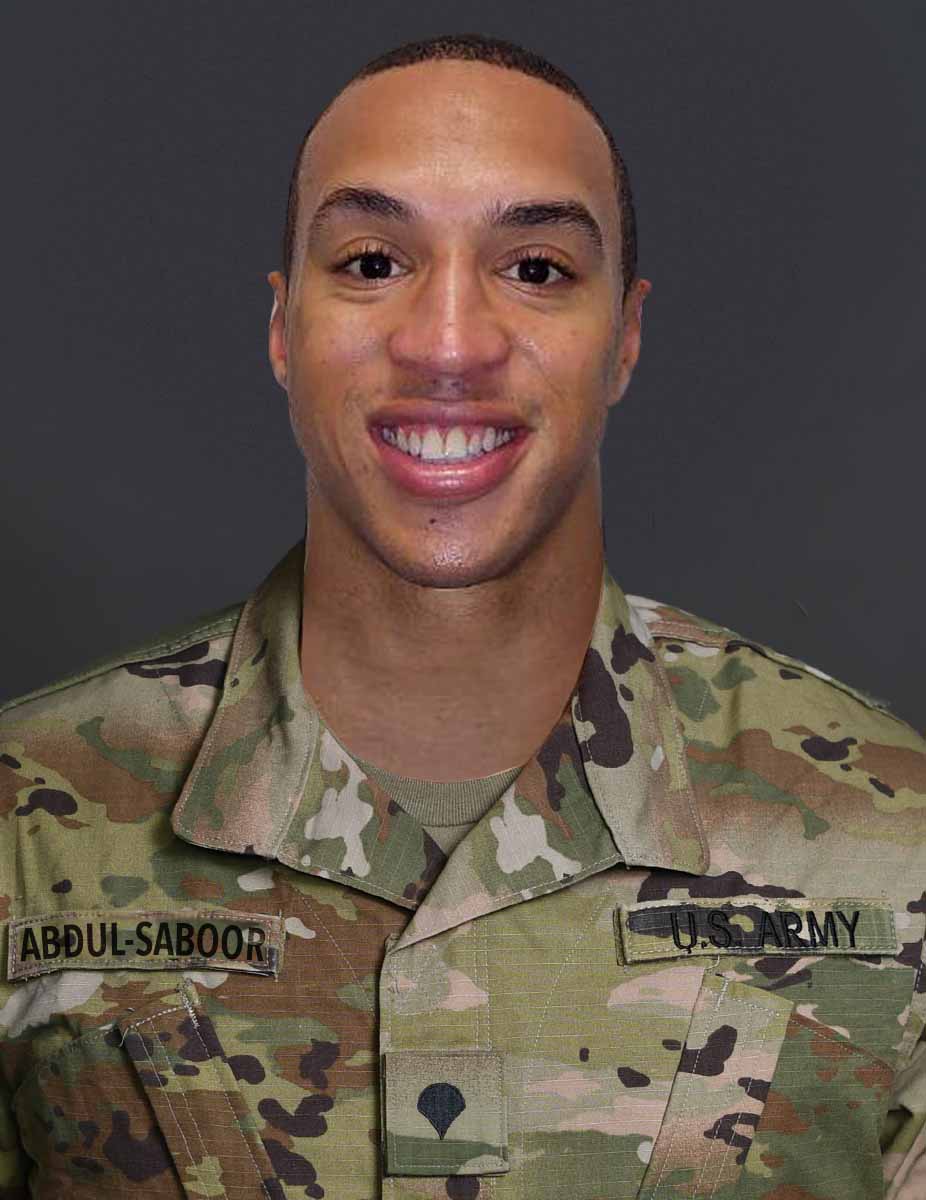 A tremendous high school track athlete and football player, Abdul-Saboor was a bodybuilder and personal trainer when a workout video he did was noticed by Dr. Brad DeWeese, the former head of physiology for the U.S. Olympic Committee.
A tremendous high school track athlete and football player, Abdul-Saboor was a bodybuilder and personal trainer when a workout video he did was noticed by Dr. Brad DeWeese, the former head of physiology for the U.S. Olympic Committee.
Before joining the Army in 2019, Abdul-Saboor, a biomedical equipment specialist, made the U.S. bobsled team and competed in both the two-man and four-man competitions at the 2018 Winter Olympics, taking 21st and 19th, respectively.
Spc. Jasper Good, ARNG (Nordic combined)
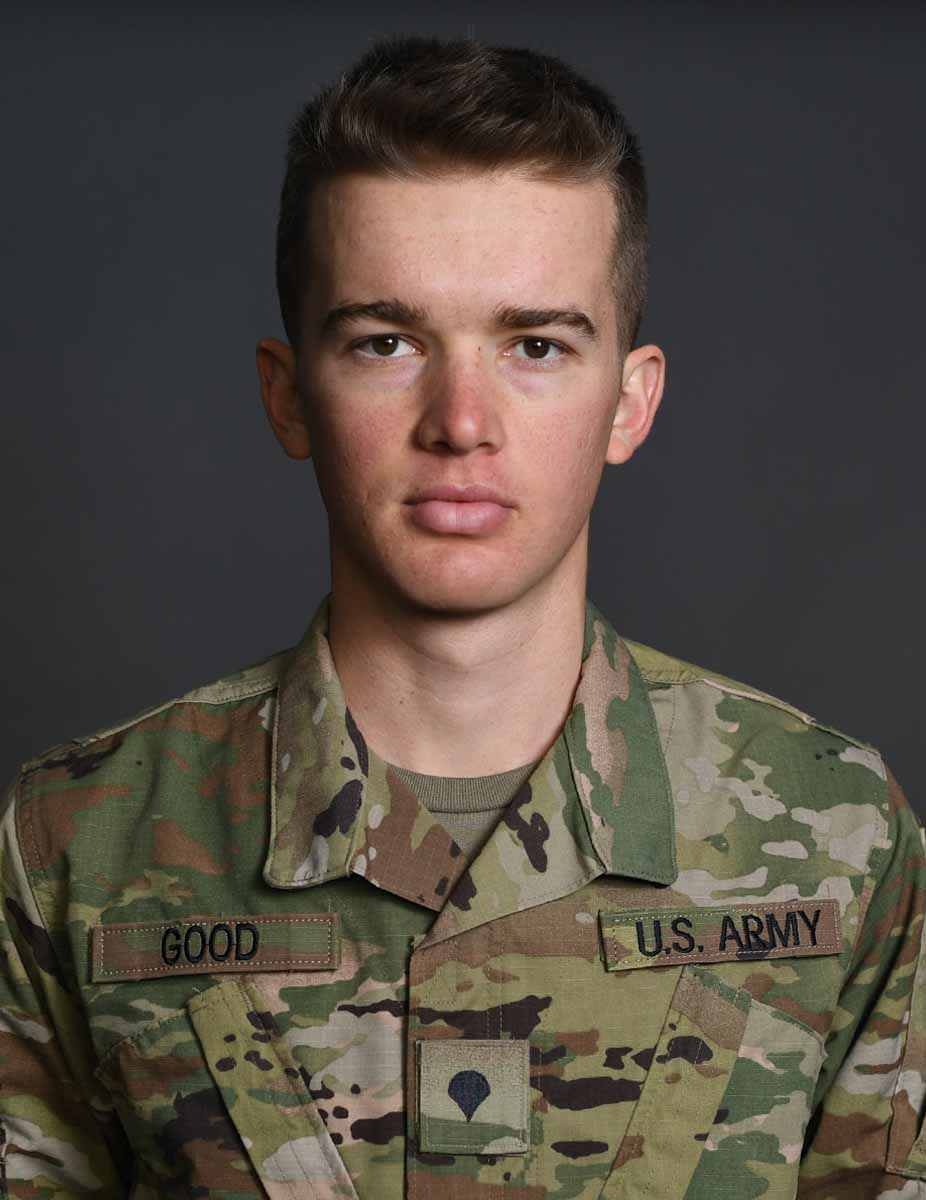 Good started his winter sports career as a 9-year-old in Colorado. In 2013, he was the Junior National Champion in Nordic combined, which is comprised of cross-country skiing and ski jumping.
Good started his winter sports career as a 9-year-old in Colorado. In 2013, he was the Junior National Champion in Nordic combined, which is comprised of cross-country skiing and ski jumping.
Good finished 43rd in the Nordic combined at the 2018 Winter Games, then joined the Army in 2019 to become part of the World Class Athlete Program (WCAP). A graduate of the University of Utah, Good is assigned to Utah National Guard Joint Force Headquarters.
“Representing Team USA at the Games means even more to me as a member of the U.S. Army World Class Athlete Program,” Good, a motor transport operator, told the Utah National Guard. “The support and camaraderie I have gained has helped me reach new levels.”
Spc. Benjamin Loomis, ARNG (Nordic combined)
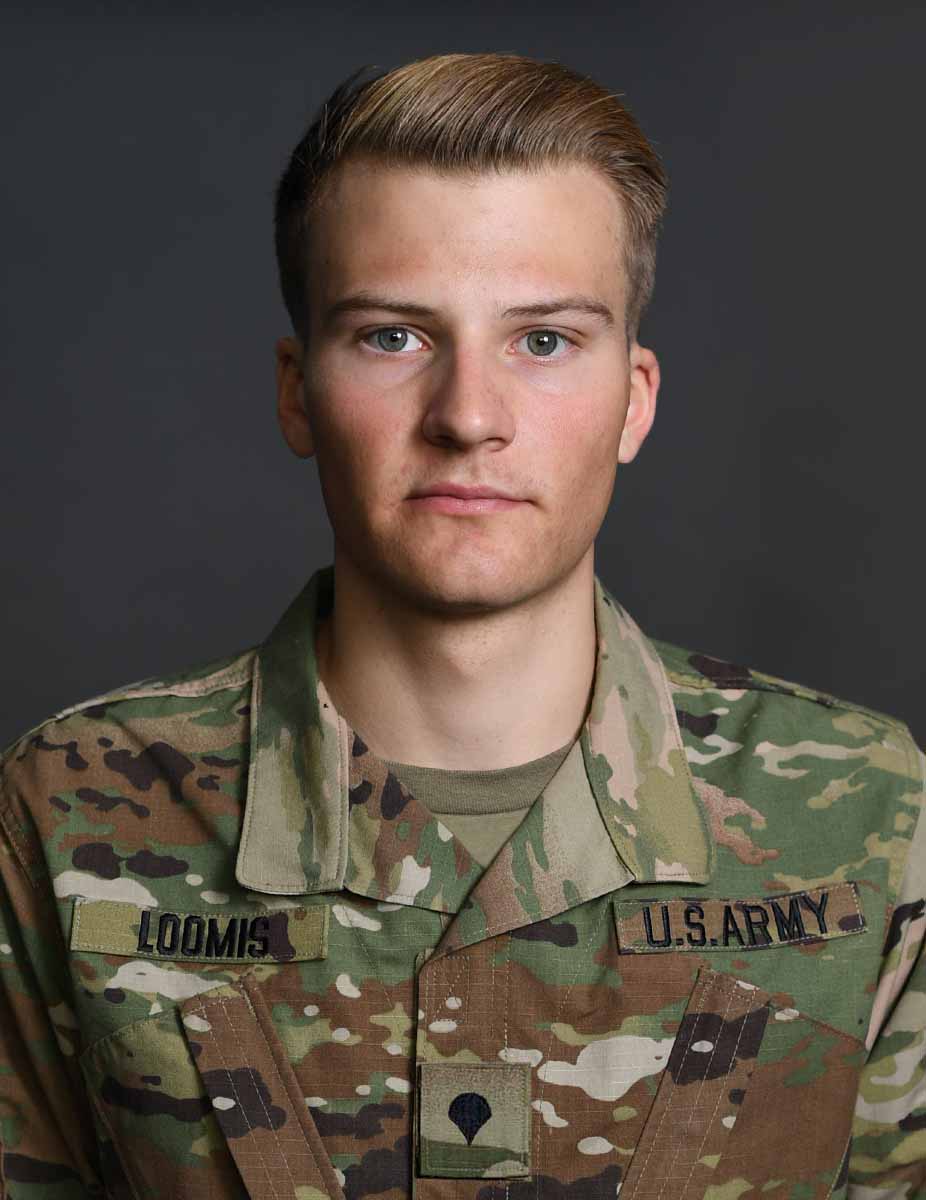 Loomis began cross-country skiing at age 2 and ski jumping at 5, so Nordic combined was a natural fit.
Loomis began cross-country skiing at age 2 and ski jumping at 5, so Nordic combined was a natural fit.
Also assigned to the Utah National Guard Joint Force Headquarters as a motor transport operator, Loomis won a silver medal at the 2016 Youth Olympic Games in Lillehammer, Norway, before taking 40th overall at the 2018 Winter Games.
Loomis enlisted in the Army in 2019.
“I am humbled and very proud to be representing the United States of America as both a soldier and an athlete,” Loomis told the Utah National Guard. “Representing this country and the U.S. Army in Beijing is a true honor and something I hope will inspire future generations.”
Spc. Sean Doherty, ARNG (Biathlon)
 The New Hampshire native and Vermont Army National Guard member is making his third consecutive Winter Olympics appearance after competing in Pyeongchang in 2018 and Sochi, Russia, in 2014.
The New Hampshire native and Vermont Army National Guard member is making his third consecutive Winter Olympics appearance after competing in Pyeongchang in 2018 and Sochi, Russia, in 2014.
At age 18, Doherty was the youngest U.S biathlon team member in the Sochi Games, finishing 16th in the relay competition. In 2018, Doherty placed 65th in sprint, 44th in individual, and sixth in relay.
In 2016, he became the all-time leader in individual medals at the IBU Youth/Junior World Championships, tallying three medals to bring his career total to 10.
Doherty joined the National Guard in 2018 and is a carpentry and masonry specialist with Detachment 1, Headquarters and Headquarters Company (HHC), Garrison Support Command.
“I joined because I wanted to continue to further my career as an athlete as well as create options for myself going forward,” Doherty told Vermont National Guard public affairs. “I would say the National Guard biathlon program is one of the best in the nation. If you are serious about competing at a high international level, the program here has all the resources to get you there.”
Spc. Leif Nordgren, ARNG (Biathlon)
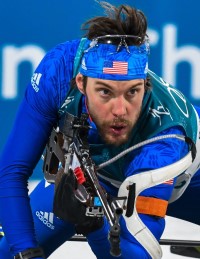 Like Doherty, Nordgren is making his third Winter Olympics appearance.
Like Doherty, Nordgren is making his third Winter Olympics appearance.
The Vermont Army National Guard member finished 58th in sprint, 50th in pursuit, 66th in individual, and sixth in relay in 2018. Nordgren placed 44th in sprint, 53rd in pursuit, 82nd in individual and 16th in relay in 2014.
Nordgren joined the National Guard in 2019 and is an aviation operations specialist assigned to Detachment 1, HHC. He plans to enroll in flight school and become a pilot after the Olympics.
“Biathlon is a lot of work,” Nordgren told Vermont National Guard Public Affairs. “It takes a ton of dedication and personal drive to push yourself to be the best athlete you can be. The soldiers with those traits will take to biathlon very naturally, as there is always something to improve, whether its ski technique, shooting precision or technique.”
Airman 1st Class Kelly Curtis, USAF (Skeleton)
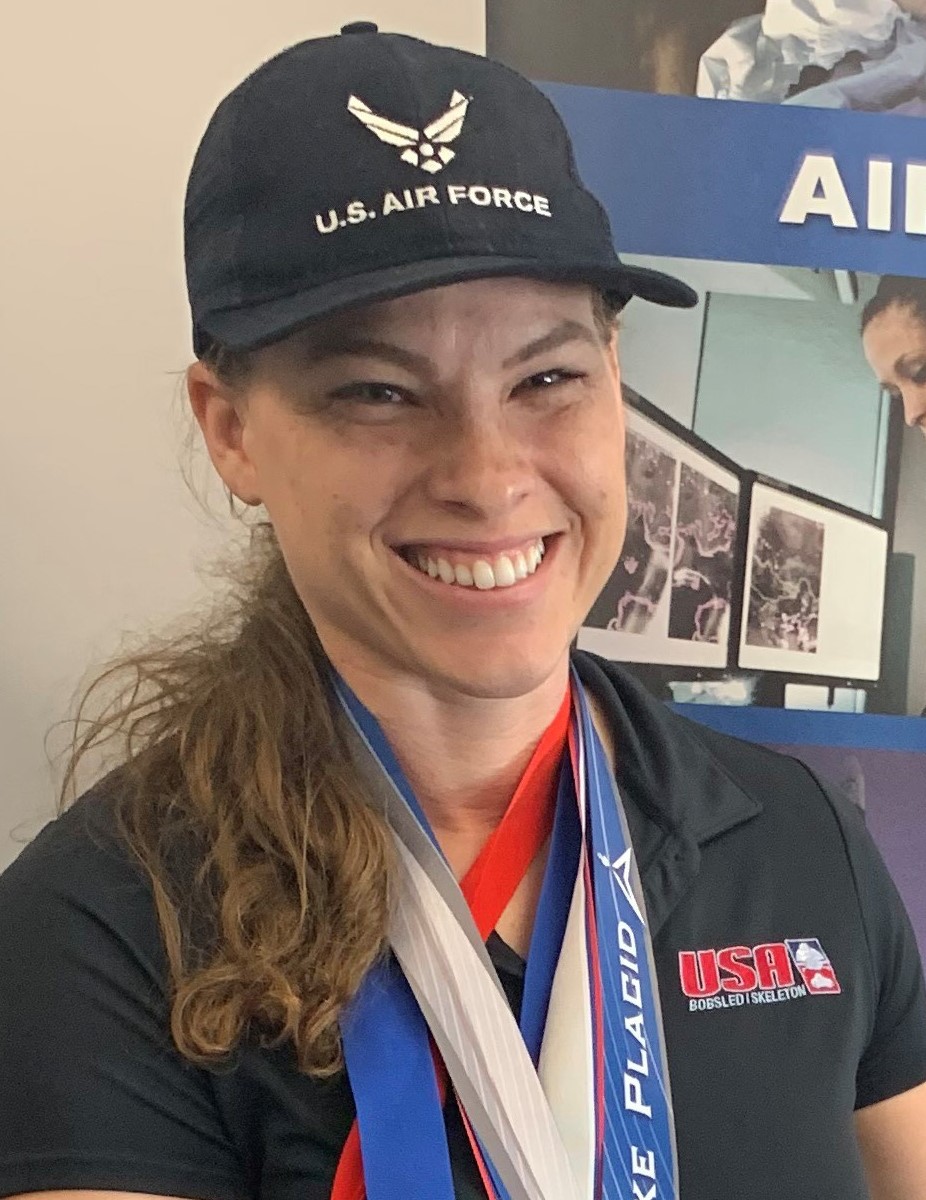 After a successful collegiate track and field career, Curtis completed her basic training in 2020 and enlisted in the Air Force under that service’s WCAP.
After a successful collegiate track and field career, Curtis completed her basic training in 2020 and enlisted in the Air Force under that service’s WCAP.
Curtis narrowly beat out an Army WCAP athlete, Capt. Megan Henry, for the last of two Team USA skeleton spots.
Curtis told Air Force Recruiting Service public affairs she’s grateful for the support provided by WCAP, especially compared with her economic challenges as an elite athlete prior to enlisting, which led her take on part-time jobs such as babysitting and serving as a background actor in motion pictures – she once played a vampire.
“Self-funding taught me how to prioritize and budget,” she said. “The struggles have made me appreciate everything the Air Force World Class Athlete Program has to offer.”
Support MOAA Charities
Your generosity will benefit the work of The MOAA Foundation and MOAA Scholarship Fund. Click for details.
